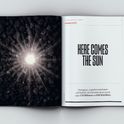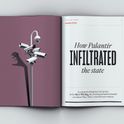Channelling cruelty
It is a shame that the government has not followed the approach advocated in David Normington’s essay. Normington’s article shows how to present a plausible public response to small boat crossings, but the government’s new Illegal Migration Bill is less concerned with plausibility than pointless draconianism.
The legislation effectively abolishes the right to claim asylum altogether for those who arrive “irregularly”. In most cases, it will also, bizarrely, outlaw removal to their home country. Instead, the government’s plan is for large-scale removals to Rwanda of almost every new person who claims asylum on arrival. It is cruel to export refugees to a poor nation to which they have no connection and where they will have no real future. It is also impractical and expensive. Large new detention camps will be required, along with the violent coercion of truly desperate and vulnerable individuals, most of whom will be genuine refugees.
By contrast, Normington’s technocratic proposals involve eliminating the existing backlog, removing unsuccessful asylum seekers (of whom there are relatively few these days), a more holistic and serious approach to diplomacy and the careful creation of more safe asylum routes. This would not “stop the boats”—but neither will the Illegal Migration Bill. Deterrence does not work; interdiction before arrival does work but is beyond the power of the UK government acting unilaterally. Normington’s approach would at least offer some reassurance to the public and an opportunity for politicians to reset the conversation around removing failed asylum seekers and offering sanctuary to genuine refugees.
It is hard to imagine what the government hopes to achieve with its new legislation. If the plan fails, the bill will merely create a massive new permanent backlog. If it succeeds, misery, deaths and injuries are likely to flow from highly contested and violent removals. The public seems unlikely to respond positively to either prospect.
Colin Yeo, Garden Court Chambers
I had two very different reactions to David Normington’s article, which seemed to combine humanity and common sense with the widespread view that asylum seekers represent a threat.
Surely, a former civil servant of his seniority must know that the UK’s real problem, along with the rest of Europe, is that our ageing and shrinking workforces badly need replenishment. The challenge is how best to handle increased immigration.
Normington’s focus was on asylum seekers because that’s what Britain’s small boats furore is all about. The media spotlight has shifted to refugees from numbers in general because requesting political asylum can seem a better bet for economic migrants, at least for those likely to encounter the new obstacles Brexit has thrown in the path of legal immigration.
Rishi Sunak’s decision to double down on anti-migrant sentiment with hardline new legislation is presumably intended as a vote-winner. One can only hope that the Labour party will campaign on the far more convincing argument that the UK economy urgently requires more manpower, not less, to compensate for Brexit’s barriers to free movement from Europe.
What is needed above all is an end to the vilification of people wanting a better life in Britain. “Asylum seekers” is too often code for “foreign scroungers”, if not criminals. A good example is the influx of Albanians; Normington is well placed to confirm that more often they’re skilled construction workers, attracted not by opportunities in crime but by the building industry’s acute labour shortages and enticing wages.
Giles Merritt, author of the forthcoming book “Europe’s Demographic Timebomb”
Fit for a king
Given his recent history, it is perhaps understandable that Martyn Percy’s article about the upcoming coronation of King Charles III turns into a rant against the Church of England. But there is more to say.
There does seem to be a mismatch between Charles’s express hope of being a defender of all faiths, not just Christianity, and the fervent statements about his deep Anglican faith made in the context of the death of the late Queen. We will have to see exactly what role—if any—is left for other faith leaders in May. The new holy oil for the ceremony represents a kind of innovation—consecrated in the Church of the Holy Sepulchre by the Patriarch and the Anglican Archbishop of Jerusalem, made partly with olives from the burial monastery of Charles’s grandmother—but it does little to expand the monarchy’s influence with other religious groups.
There will be some other innovations, for instance the shorter service, with 2,000 rather than 8,000 guests; a shorter procession, without Commonwealth heads of state (remember the Queen of Tonga in 1953?); and the avoidance of the controversial Koh-i-Noor diamond in the Queen Consort’s crown. The inclusion of all three of William and Kate’s children in the procession will make proceedings seem slightly more informal. Charles will wear naval uniform and peers will not have to wear their robes.
But the creaky Gold State Coach will be brought out again, a large number of military personnel—4,000—will be involved, and their ceremonial uniforms and horses will be very expensive. Charles is also following precedent with a concert at Windsor, coronation lunches across the country and a bank holiday.
There is no sign yet of the King giving up any of the many houses he now owns, or changing royal habits such as spending Christmas at Sandringham and summer at Balmoral. The titles of Prince and Princess of Wales given to his son and daughter-in-law, and of the Duke of Edinburgh to his brother, are entirely traditional.
The establishment of the Church of England is not a problem that will be unstitched soon, if ever. Meanwhile, with the succession safely resolved, Charles will make the most of his new status.
Averil Cameron, chair of the 2001 Review of the Royal Peculiars
Martyn Percy takes the Church of England to task for not reflecting the egalitarian values of Britain’s multi-faith and secular society. He suggests the coronation presents a chance for the Church to “begin setting aside its privileged position and hierarchies”. But the coronation is not solely the responsibility of the Church. It is a state occasion as much as a church ceremony, and the state bears equal responsibility for its planning. This is done through a Coronation Committee, which includes two secretaries of state (Oliver Dowden from the Cabinet Office and Lucy Frazer from Culture, Media and Sport), and is responsible for determining the overall scale of the event—because the state pays the bill.
In particular, the Coronation Oath, when the King swears to maintain the Protestant reformed religion and the rights and privileges of the Church of England, is the responsibility of the state, not the Church. As Percy says, it is prescribed in legislation—the Coronation Oath Act 1688—and only parliament can change that. In our report “Swearing in the New King”, we suggest ways in which the oath could be updated to reflect Britain’s more multi-faith society. Amendments have not been forthcoming.
If the oath is administered in its ancient form, it will be the state that has failed to keep up with the times, not the Church.
Robert Hazell, founder, Constitution Unit at University College London
There is a great deal wrong with the Church of England, not least its historical tendency to conform to the prevailing mores of English society. Ironically, Martyn Percy appears to be advocating that it should continue this regrettable practice.
His main complaint is that the Church is taking too long to replicate “progressive”, supposedly majority, social attitudes. But there is a major problem with this view: as Percy himself points out, the majority of English people no longer identify as Christian. This being so, the idea that the Church should follow majority opinion essentially means that it should cease to be Christian.
To say this is not to take any position on whether or not the Church should acknowledge LGBTQ+ and other rights (clearly, Christians disagree with one another on that), merely that the decision should be made on specifically Christian grounds, not because secular society has decreed that it shall be so.
Jeremy Young, Bath
Prick’s provenance
From the 15th century, a prick was also a written mark or dot. When Mercutio tells Benvolio that Tybalt “fights as you sing prick-song”, he is referring to prickt, or written vocal music. In other words, he fights from the book, imitating the form of the fencing manual.
Austen Lynch, Lancashire
In the balance
I admired Mark Damazer’s clear explanation of the difference between impartiality and the actual BBC requirement for “due impartiality”. If he is right (I was persuaded), then, worryingly, I am not sure this is really understood at the BBC itself. The corporation’s director of editorial policy was quoted not long ago as saying that if enough people believed the Earth to be flat, then the BBC had to take proponents of the idea seriously. It is surely difficult to claim that the BBC gave only “due” treatment to clearly false claims over climate change and Brexit (concerning the £350m a week figure and Turkey’s accession to the EU, to name but two).
When Tim Davie stated in March that “one of our founding principles is impartiality”, he omitted that word “due”. The director general previously stood as a Conservative council candidate, the chairman has close ties to both Rishi Sunak and Boris Johnson and donated huge sums to the Conservatives, and board member Robbie Gibb is an ex-spin doctor for the Conservatives. This, not the opinion of a freelance sports commentator, must surely be the core issue with regard to the BBC being duly impartial—and being seen to be duly impartial.
PE Basford, Hertfordshire
Origin story
To my mind, the discussion about the origin of Sars-CoV-2 rotates around two equally implausible scenarios: that the virus was manufactured in a laboratory in Wuhan, or that it jumped out of a dish of pangolin soup somewhere nearby. What is far more likely is that, rather than appearing suddenly overnight, the virus slowly gained a foothold in human populations after emerging from the wild. It had probably already been circulating over a period of several months in China, and only came to light in Wuhan when it was at sufficient prevalence for an intelligent physician to identify an atypical cluster of hospital cases and raise the alarm.
I cannot blame colleagues for rushing to stem potentially dangerous speculations about a leak. But it is extremely unfortunate that a civilised discussion about the source of the virus became impossible under their dedication to a single version of the natural origin narrative. That same closed mindset also made sensible debate impossible on the infinitely more important question of how to come up with a humanitarian way of minimising deaths from the pandemic.
I should like to make the further point that the hysteria around gain-of-function research—which looks to modify pathogens to enhance (and then study) certain biological characteristics—is misplaced. Many of the proponents of lockdown were also firmly in favour of stopping gain-of-function research in pre-pandemic times. But my own assessment—which I believe is shared by many other virologists—is that it is an unfortunately named standard process for determining the properties of viruses and carries a very low risk to any of us. In fact, gain-of-function experiments are far more likely to lead to medical interventions that improve lives than to spawn a new pandemic. Nature is far more adept at that.
Sunetra Gupta, University of Oxford
Membership misunderstood
Well done for facilitating the discussion between Patience Wheatcroft and Iain Martin. It came across as being constructive and reasonable. However, it is clear that Martin still doesn’t understand the EU.
He bemoans governance with “a permanent transnational government above you”, as though we didn’t have our own government throughout, elect MEPs and occupy a seat on the European Council. He suggests we did not operate “as a truly sovereign state”, even though we never lost our sovereignty and the UK is recognised as having been an excellent contributor to collective EU negotiations.
Until Brexit supporters can understand that we must share sovereignty and yield on our nationalist positions, we will never make progress on any aspect of international relations, such as work towards climate mitigation.
Nick Coates, Bath
Celery cause célèbre
I can completely empathise with Emma John’s habit of aimlessly scrolling through sports information online, but to describe the info as passing straight through “without adding the slightest benefit, like celery” is misleading in the extreme.
Celery is high in fibre and has many health benefits. Even if not fully digested, it impacts gut motility in a positive way. It may also improve gut bacteria populations (there are more bacteria in the body than there are human cells, and their role in gut health is crucial). The scientific literature is categoric on the benefits of high-fibre food (including celery and numerous other plants and vegetables) and experts lament that so few people reach the recommended 30g of fibre a day.
Given the high prevalence of diet-related disease in the UK and globally, perhaps Emma John could think of another way of describing how people scroll through information online, rather than picking on nutritious foods.
Emile Richman, Royal Liverpool University Hospital
In fact
The Luton Dart, a new three-minute airport shuttle service, costs £3.95 a mile, overtaking the Heathrow Express (£1.52 a mile) as Britain’s most expensive train journey.
Guardian, 3rd March 2023
Since the Sars virus emerged in 2002, it has escaped at least six times from virology labs, including four times from one lab in Beijing.
New Yorker, 3rd March 2023
In São Paulo, nine out of 10 kidnappings in the past year have occurred after a date was arranged through Tinder or similar apps.
Rest of World, 1st March 2023
In 2022, fewer than 500 rough collies (the dog breed made famous by Lassie) were born in the UK, a 94 per cent decline from 1979.
Metro, 27th February 2023
Of the 30 most-watched US TV broadcasts of all time, 29 are American football games (the other is the 1983 finale of MAS*H).
New York Times, 7th February 2023
There are about 2.5m ants for every human.
Eos, 17th February 2023
Nearly £25m of lost cash was handed in to the Tokyo police in 2022, the highest total since records began in 1940.
Times, 14th March 2023
As of 1st January 2023, six countries now have gender parity or a greater share of women than men in their lower or single political chamber, with New Zealand joining Cuba, Mexico, Nicaragua, Rwanda and the UAE.
Women in Parliament 2022
Across the UK, 17,145 shops closed for good in 2022, up almost 50 per cent on 2021.
Centre for Retail Research
The liqueur Chartreuse is made by French Carthusian monks based on an alchemist’s recipe from 1605 using 130 different herbs, plants and flowers. The two monks who make the drink know only half the recipe each; both have taken a vow of silence.
Everyday Drinking, 24th February 2023













